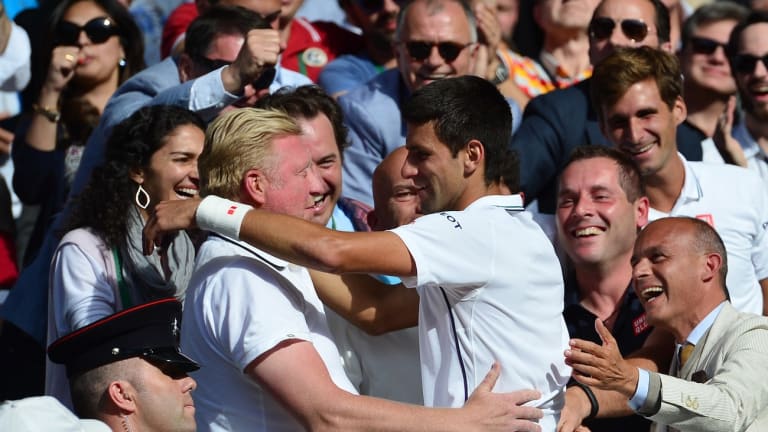Entering their first Wimbledon final against each other in 1988, both players had two grass-court major victories under their belts, with Stefan Edberg’s coming at the Australian Open in 1985 and 1987. Becker held a 9-4 advantage in their head-to-head encounters, including his most recent win at Queen’s right before Wimbledon. At the All England Club, Edberg came out on top, defeating Becker and taking an overall lead in majors between the pair. When they met again in the 1989 championship match, Becker routed the Swede in straight sets for his third title there in five years. Edberg turned the tide in 1990 by topping Becker in a five-set classic.
It almost appeared as if a fourth straight final was in the works between the two, but Edberg was shocked in the semifinals by Becker’s countryman, Michael Stich. Becker, who had won the Australian Open at the beginning of the year and was bidding for his second major of 1991, was surprised by Stich, too, in the final.
Over the next few years, Becker maintained a presence during the second week of Wimbledon, but his efforts were stymied by Andre Agassi, Pete Sampras and Goran Ivanisevic. In fact, Sampras had been establishing himself as one of the greats with titles in 1993 and ’94. Becker got another crack at the American in the 1995 final, but fell in four sets.
After winning his first Grand Slam in five years at the 1996 Australian Open, Becker’s hopes were high for Wimbledon, but a wrist injury forced him to retire in the third round. When Sampras beat Becker again in 1997 in the fourth round, the three-time champion acknowledged that Centre Court belonged to the world No. 1 and that he was done at the tournament that shaped his legacy.
However, after a year’s absence, he returned. Ranked No. 77, Becker defeated his young countryman Nicolas Kiefer and the rising Australian Lleyton Hewitt on his way to the fourth round, where the two-time defending US Open champion Patrick Rafter halted his charge. That would be the last singles match of the six-time Grand Slam champion’s career—though he wasn’t done with winning at Wimbledon just yet.
Fifteen years later, Becker enjoyed the thrill of victory at the All England Club, albeit from a different perspective.
